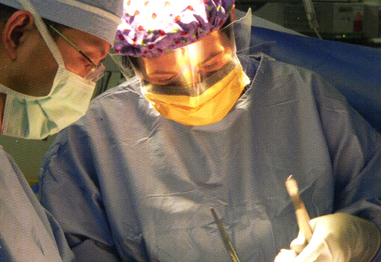 |
|||||||||||||||||||||||
|
The Role of a Surgical Oncologist Surgical oncologists guide patients through the entire spectrum of cancer treatment, from treatment planning and surgery to coordination of follow-up care and survivor issues. More than a technician who removes cancer when possible, the surgical oncologist is always striving to optimize the timing and plan of care to obtain the best possible outcome for people with complex problems related to cancer. While there are a large number of surgeons available in most communities, when confronting cancer, it is crucial for patients to choose well-trained surgical oncologists specializing in the complex issues encountered during cancer treatment. Choosing a surgeon who is an active member of the Society of Surgical Oncology (SSO) is the first step in assuring up-to-date, coordinated care. Founded in 1940, the SSO is devoted to ensuring "that all cancer patients receive the highest quality, comprehensive, multimodal cancer care." SSO has streamlined its membership requirements, recognizing the diversity of surgeons who care for cancer patients. To qualify as an Active Member, a surgeon must be certified by the ABS (or equivalent surgical specialty board) and have an interest and commitment to oncology demonstrated by any of the following: Oncologic teaching or research, involvement in the American Cancer Society or Commission on Cancer, a leadership role in hospital or community cancer activities, authorship of publications on topics pertaining to oncology, and/or membership in other oncologic societies.
|
|
|||||||||||||||||||||
|
|
|||||||||||||||||||||||
